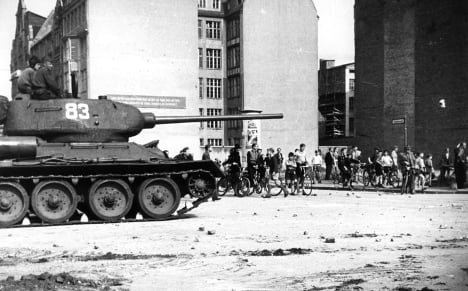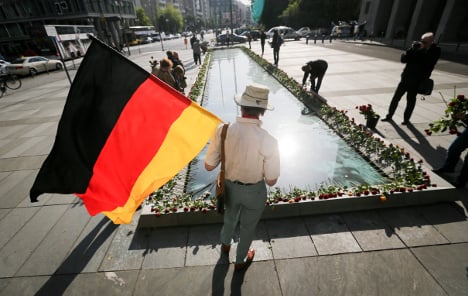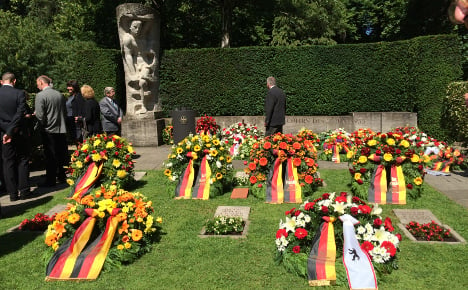At the cemetery in Berlin where some of the victims of the massacre are buried, a group of around 200 people gathered to remember the tragic event.
There are 55 known victims of the oppression of the uprising on June 17th 1953, but many more were injured, arrested, and even executed in the aftermath all over East Germany.
Leading the ceremony in memory of these fallen demonstrators was recently-installed Berlin mayor Michael Müller. He offered some eloquent words on the importance of the event:
“For the million people who took to the streets to protest against dictatorship and oppression, the way to freedom was unclear.
“The people in East Berlin and the GDR (German Democratic Republic) were prepared to put themselves in danger in the name of freedom,” he said.
The atmosphere in East Germany was tense in the early 1950s, as leader Walter Ulbricht attempted to implement his version of socialism.
Before the Berlin Wall, this meant that the state was suffering from a severe brain drain, as people got fed up and moved west.
Around one million East German citizens left the country before the Wall was put up in 1961 and the much longer land border between the two countries was fortified.
Even by 1953 workers were struggling, and the protests eventually broke out when the government announced it was increasing labour norms, asking people to do more work for the same pay.
Around 40,000 protesters took to the streets in East Berlin, but many more did so in the rest of the country.
A “proud day in Germany's history”
Beyond the obvious tragedy of the East German state murdering its own people, the atmosphere at the service was also one of triumph and admiration.
“The fall of the wall would not have been possible without the freedom movements in Eastern Europe in the late 1980s, but at the very beginning of it all lies the uprising of 1953,” said Müller
Many of those present had personal memories of the tragedy, including an elderly man, who still seemed to be outraged, as he gesticulated at the graves of 15 and 16 year-old boys, blurting out in exasperation: “16 years old. It's madness.”
Also present was a woman in her eighties, who was living in West Berlin at the time. “I was there at Potsdamer Platz, and then the police just started firing into the crowd. It was awful,, just awful,” she said sorrowfully.

She spoke about how she knew people living in the east of the city who just packed up and moved to the West.
Her parents remained in East Berlin, and so she ended up being separated from them in 1961 when the wall was erected.
When asked about how the events are remembered today, she said emphatically. “Of course people of my generation all still remember, but the youth of today, they don’t know anything.”
Many West Berliners stood shoulder to shoulder with East Berliners on June 17th, and the memorial service stressed the importance of the demonstration as a crucial moment of unity between the two states.
West Germany immediately declared June 17th as the day of German Unity, which lasted until reunification.

A new generation
As well as politicians and people old enough to remember it first hand, there were lots of school children present, who represent this new generation of remembrance mentioned by the elderly West Berliner.
A teacher from the nearby Schillerpark School spoke to The Local about how her students had only had the opportunity to briefly learn about the uprising.
“It is hard to fit all the post-war history and reunification into the curriculum, and I think East German history is neglected as a result,” she said.
As the number of people alive at the time of these events dwindles, it will be up to teachers like her to make new generations understand how much their forebears sacrificed for the Germany they live in today.
By Matty Edwards


 Please whitelist us to continue reading.
Please whitelist us to continue reading.
Member comments